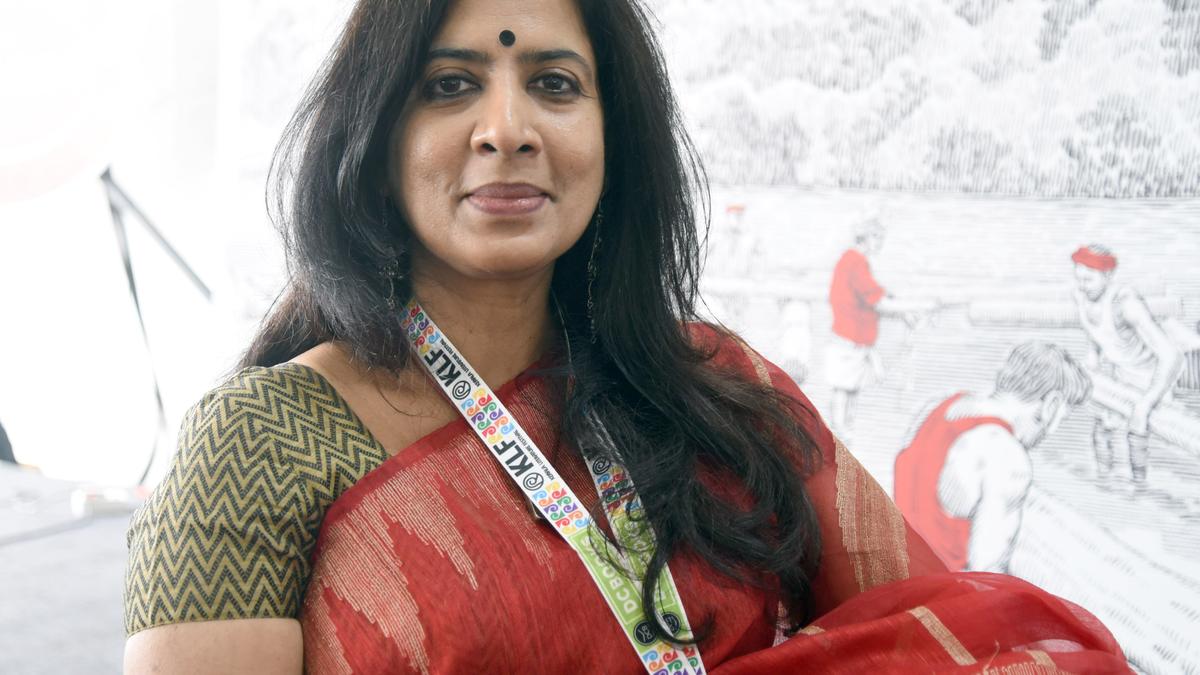Arundhati Subramaniam: The Poet Who Chose Poetry Over Prose - A Captivating Journey
In a world obsessed with the allure of novels, Arundhati Subramaniam stands as a beacon of poetic defiance. She's the award-winning poet who famously declared she'd never write a novel, a choice that, in retrospect, has shaped her legacy. Discover the inspiring journey of this Indian poet and why she decided that poetry, not novels, is where her heart truly lies. Prepare to be captivated!
The Unfashionable Choice: Why Poetry Over Prose?
For years, Arundhati Subramaniam, amidst the booming success of Indian novelists like Salman Rushdie and Arundhati Roy, resisted the pervasive pressure to write a novel. This wasn't mere contrariness; it was a conscious decision deeply rooted in her artistic sensibilities. She saw the richness of the world untouched by novels. The world is far richer, she claimed, due to this seemingly 'unfashionable' option she chose. Her poetry shines through this choice and has helped her become one of the most significant poetic voices of India.
Embracing the Poetic Path: A Journey of Self-Discovery
Subramaniam's poetic journey began long ago, sparked by a youthful encounter with the profound works of T.S. Eliot. That pivotal moment ignited a flame within her, shaping her path. The inspiration helped her embrace the world of poetry which she soon started to pen herself after getting an MA. Years later, her talent culminated in the Sahitya Akademi Award and a nomination for the prestigious T.S. Eliot Prize. This recognition speaks volumes about the enduring power of her work.
Her decision against prose gave her time to focus solely on her talent for poetry. This singular focus contributed greatly to her prolific poetic output, leading to successful collections such as her debut, "On Cleaning Bookshelves," and her widely acclaimed recent anthology, "Wild Women." This dedication established her as one of India's prominent voices in English poetry, a feat many novelists never achieve. She was well aware of her prowess in writing poems and was comfortable with her talents.
Celebrating the 'Wild Women' and Forgotten Voices
Subramaniam's anthology, "Wild Women," is more than a collection of poems; it's a powerful testament to the unsung heroines of history. The book serves as a reminder of the countless women who shaped history, women we have largely forgotten. A powerful poem which exemplifies the greatness in her poetry, it also showcases women's history. With "Wild Women," Arundhati hopes to reinstate these figures.
Redefining Feminism: Indian Women's Untold Stories
The anthology boldly challenges the conventional narrative of feminism, emphasizing India's rich heritage of outspoken women. She correctly highlights the often-overlooked fact that feminism wasn't imported from the West; rather, Indian women have been at the forefront of self-expression and empowerment. The ancient Therigatha poems serve as evidence and have been mentioned by the poet herself in many articles and her work. This piece is a vital part of the feminism discussions of our era.
The influence of poets such as Kamala Das and Eunice de Souza is felt strongly. It showcases a rich Indian heritage. While these pioneers laid the groundwork, Subramaniam reminds readers of a multitude of such incredible voices that are unheard of.
The Enduring Power of Poetry in the Digital Age
In today's digital landscape, where poetry finds its voice on numerous online platforms, Subramaniam notes a positive yet problematic trend. She admires the ease of access and self-publication for up and coming poets but regrets the overall declining consumption of actual printed poetry books. These books contain challenging pieces that deserve more than a mere one-minute skim through. While online presence is a step forward, it shouldn't diminish the significance of physical books, and Subramaniam highlights why printed poetry remains essential.
A Call for a Deeper Engagement: The Significance of the Printed Word
The appeal is clearly shown in Arundhati Subramaniam's success. Her unique focus on poetry has paved the path for more discussion in this topic. Subramaniam notes that books of poetry offer much more than a mere online verse can deliver. She urges readers to rediscover the unique value of tangible books, highlighting their power to inspire contemplation, deeper engagement, and lasting impact. Her work highlights the strength in poetic writing.
The Poetic Life: Three Cities, One Vision
Subramaniam's life seamlessly intertwines three cities: New York (where she has her husband), Chennai (her mother's home), and Bombay (the heart of her life). Her life transcends geographical boundaries, illustrating her profound emotional and personal connections to different places and her powerful love for family. These elements also strongly inspire her art, especially her poetry. This inspiration gives a glimpse into Arundhati Subramaniam's personal side and how her work is deeply routed in her personal life and connections.
Inspiration in Every Place and Every Corner: Balancing Personal Life and Poetry
It is this seamless merging of life and art that inspires her poetry. Subramaniam shows how inspiration can be found anywhere, creating an evocative depiction of how the personal greatly informs her artistic creativity. It is evident that Subramaniam balances her personal life seamlessly with her artistic pursuits, underscoring the intricate links between these integral facets of her existence.
Take Away Points:
- Arundhati Subramaniam's unwavering commitment to poetry, despite societal expectations, is inspirational.
- Her anthology "Wild Women" brings long-forgotten Indian women's voices to light, challenging traditional notions of feminism.
- She advocates for a return to physical poetry books and the value of deeper engagement with art.
- Her poetic voice remains influential in celebrating resilience and embracing diversity in India.









